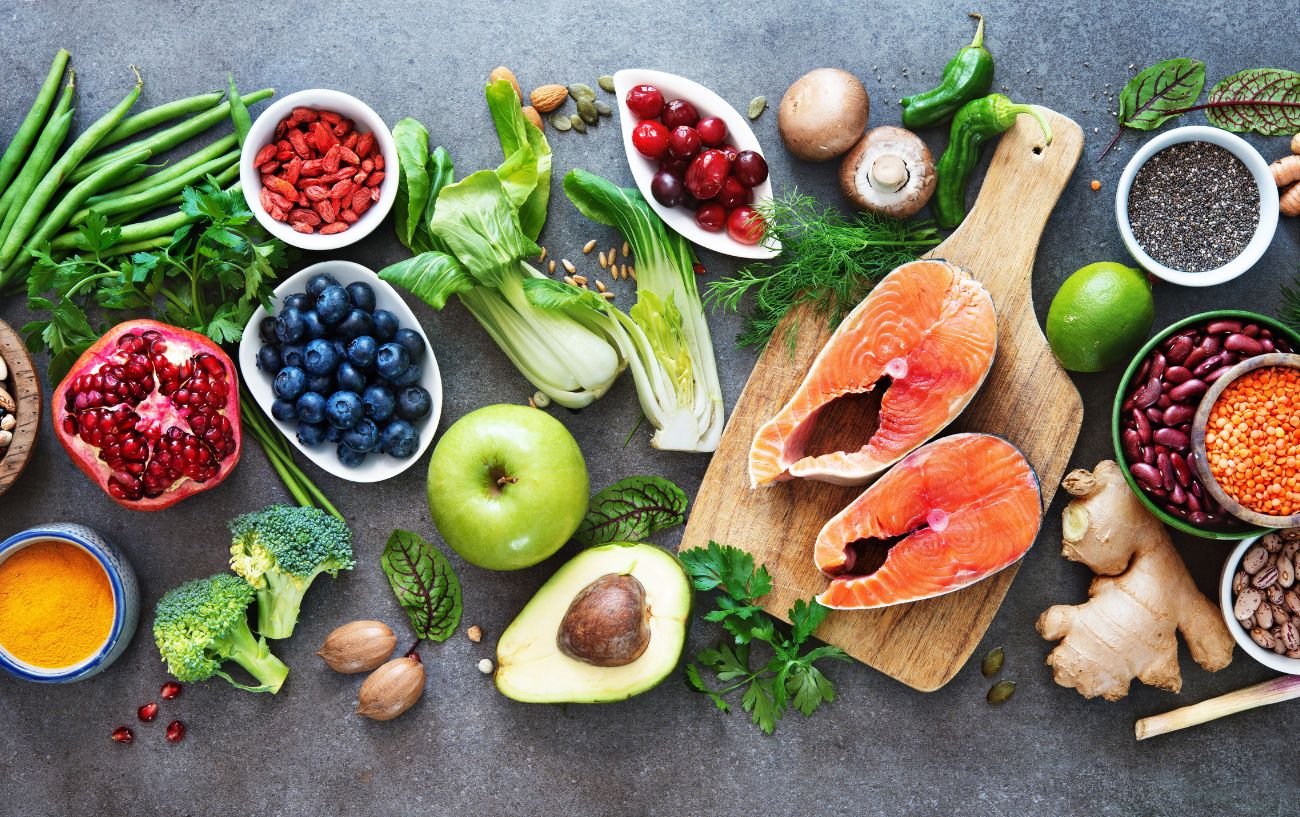Home>Misc>Featured>How Soon After A Workout Should You Eat Protein


Featured
How Soon After A Workout Should You Eat Protein
Modified: August 19, 2023
Discover the optimal time to consume protein after a workout. Learn more about the benefits of featured protein intake and maximize your post-workout recovery.
Introduction
When it comes to maximizing the benefits of your workout, proper nutrition plays a crucial role. In order to repair and build muscle tissue, your body needs a sufficient amount of protein post-workout. Protein is the key macronutrient responsible for muscle recovery, growth, and repair.
Protein helps to repair the microscopic damage that occurs to your muscle fibers during exercise, leading to muscle growth and improved strength. Consuming protein after your workout helps to replenish and rebuild these damaged muscle fibers, enabling you to recover faster and perform better in future training sessions.
But how soon after a workout should you eat protein? Is there an optimal timing for protein consumption? These are common questions that many fitness enthusiasts and athletes ask.
In this article, we will delve into the importance of protein in post-workout nutrition and explore the optimal timing for protein consumption after a workout. We will also discuss the factors that influence protein absorption rate and the window of opportunity for protein consumption. Lastly, we will provide you with some protein-rich meal options to aid in your post-workout recovery.
By understanding the importance of protein and its ideal timing in relation to your workouts, you can optimize your nutrition and get the most out of your training sessions.
Importance of Protein in Post-Workout Nutrition
Protein is an essential nutrient that plays a critical role in muscle recovery, growth, and repair. When you engage in intense physical activity such as weightlifting, resistance training, or high-intensity interval training (HIIT), your muscles undergo stress and micro-tears. Consuming protein after a workout helps to facilitate the repair and rebuilding process, leading to muscle growth and improved performance.
During exercise, your body breaks down muscle protein to provide amino acids, which are the building blocks of protein, for energy. This process is known as muscle protein breakdown. To restore and rebuild the damaged muscle tissue, you need to consume adequate protein to promote muscle protein synthesis.
Muscle protein synthesis is the process in which your body builds new proteins to repair and grow muscle tissue. By consuming protein after a workout, you provide your body with the necessary amino acids to initiate and support this process. This results in increased muscle protein synthesis, which leads to muscle growth and enhanced recovery.
Furthermore, protein also helps to replenish glycogen stores in your muscles. Glycogen is the stored form of glucose, which is the primary source of fuel for your muscles during high-intensity exercise. By consuming protein with carbohydrates after a workout, you can enhance glycogen repletion and promote optimal muscle recovery.
Additionally, protein has a higher thermic effect of food (TEF) compared to carbohydrates and fats. TEF refers to the energy expenditure required for your body to digest, absorb, and process nutrients from the food you consume. Protein has a higher TEF, meaning that your body burns more calories in the process of digesting and metabolizing protein. This can be advantageous for individuals looking to maintain or lose weight while optimizing their muscle-building potential.
Overall, including an adequate amount of protein in your post-workout nutrition is essential for muscle recovery, growth, and repair. It helps to initiate muscle protein synthesis, replenish glycogen stores, and can contribute to your overall energy expenditure and body composition goals.
Digestion and Absorption of Protein
Understanding the digestion and absorption process of protein is crucial in determining the optimal timing for protein consumption after a workout. Protein undergoes several stages of digestion before it is broken down into amino acids and absorbed into the bloodstream.
The process of protein digestion begins in the stomach, where it is exposed to stomach acid and digestive enzymes. The acid denatures the protein, breaking its complex structure, while the enzymes break it down into smaller peptide chains. From the stomach, the partially digested protein moves to the small intestine.
In the small intestine, pancreatic enzymes break down the peptide chains further into individual amino acids. These amino acids are then transported across the intestinal wall and into the bloodstream, where they can be utilized by the body for various physiological processes, including muscle repair and growth.
The rate of digestion and absorption of protein can vary depending on the type of protein consumed. Different protein sources have different digestion rates, which can impact how quickly amino acids are available for muscle protein synthesis.
Whey protein, for example, is rapidly digested and absorbed, making it an ideal choice for post-workout nutrition. It contains a high concentration of essential amino acids, which are quickly released into the bloodstream to support muscle protein synthesis. Other fast-digesting protein sources include lean meats, poultry, and fish.
In contrast, protein sources such as casein, which is found in milk and dairy products, are slower to digest. These protein sources form gel-like structures in the stomach, resulting in a slower release of amino acids into the bloodstream. While this can provide a sustained source of amino acids over a longer period of time, it may not be as optimal for immediate post-workout recovery.
It is important to note that the digestion and absorption of protein can also be influenced by factors such as individual differences in metabolism, gut health, and the presence of other macronutrients in the digestive system. These factors can impact the rate at which amino acids are released and utilized by the body.
Understanding the digestion and absorption process of protein can help you make informed decisions about the type and timing of protein consumption after your workouts.
Optimal Timing for Protein Consumption After a Workout
The timing of protein consumption after a workout is a topic of debate among fitness enthusiasts and researchers. While there is no one-size-fits-all answer, several factors can guide the optimal timing for protein intake to maximize post-workout recovery.
Research suggests that consuming protein within the post-workout window, typically within 30 minutes to two hours after exercise, can be beneficial for muscle repair and growth. During this time, your muscles are most receptive to nutrient uptake, making it an opportune period to supply your body with the necessary amino acids for optimal recovery.
One study published in the Journal of the International Society of Sports Nutrition found that consuming protein immediately after resistance exercise resulted in greater muscle protein synthesis compared to delaying protein consumption by several hours.
However, other studies have shown that the overall protein intake throughout the day is more important than the timing of protein consumption immediately after a workout. It is still beneficial to consume protein in the post-workout window, but the total daily protein intake is a key determinant of muscle protein synthesis and recovery.
Individual preferences and schedules also play a role in determining the optimal timing for protein intake. Some individuals may prefer to consume protein immediately after a workout, while others may find it more convenient to have a protein-rich meal within a couple of hours following their exercise session.
Ultimately, it is essential to prioritize consistency in protein consumption throughout the day and ensure that you meet your daily protein requirements based on your goals, body weight, and activity level. Splitting your protein intake evenly across your meals can help provide a sustained delivery of amino acids to support muscle recovery and growth.
Keep in mind that protein consumption before a workout can also be beneficial. A pre-workout protein source can help provide amino acids during the exercise session itself, minimizing muscle breakdown and promoting recovery.
In summary, while the post-workout window is generally seen as an opportune time for protein consumption, the overall daily protein intake and consistency are key factors. Tailor your protein intake to your preferences and schedule, ensuring that you meet your protein requirements for optimal recovery and muscle growth.
Factors that Influence Protein Absorption Rate
The rate at which your body absorbs and utilizes protein can be influenced by several factors. Understanding these factors can help optimize protein absorption for maximum benefit in post-workout recovery.
1. Protein Source: The type of protein you consume can impact its absorption rate. As mentioned earlier, whey protein is known for its fast absorption due to its high content of essential amino acids. On the other hand, protein sources such as casein and plant-based proteins may have a slower absorption rate.
2. Protein Quality: The quality of protein, determined by its amino acid composition and bioavailability, can also affect absorption. High-quality protein sources tend to have better digestibility and a higher proportion of essential amino acids, which are more readily absorbed and utilized by the body.
3. Digestive Health: The health and efficiency of your digestive system can influence protein absorption. Factors such as gut health, digestive enzyme production, and the presence of any digestive disorders can impact the breakdown and absorption of protein.
4. Other Macronutrients: The presence of other macronutrients in your digestive system can affect protein absorption. Consuming carbohydrates alongside protein can potentially increase the release of insulin, which can enhance protein synthesis and uptake by muscle cells.
5. Individual Differences: Each individual may have unique metabolic characteristics that impact protein absorption. Factors such as age, body composition, and overall health can influence how efficiently protein is absorbed and utilized by the body.
6. Timing and Composition of Other Meals: The timing and composition of meals prior to and after your workout can also affect protein absorption. Consuming a meal high in fats and fiber immediately before or after your workout may slow down the absorption of protein.
It is important to note that while these factors can influence protein absorption, the overall daily protein intake and consistency remain critical for muscle recovery and growth. Ensuring that you meet your protein requirements from a variety of sources throughout the day can help optimize absorption and support your fitness goals.
The Window of Opportunity for Protein Consumption
The concept of a “window of opportunity” for protein consumption after a workout suggests that there is a limited time frame during which your body is most receptive to protein absorption and utilization. While the exact duration of this window is still debated, it is generally believed to occur within the first few hours following exercise.
During this window, your muscles are in a state of heightened sensitivity to protein and other nutrients. The increased blood flow to the muscles, along with the activation of certain cellular pathways, creates an optimal environment for nutrient uptake and muscle repair.
Consuming protein within this post-workout window provides your body with the necessary amino acids to initiate and support muscle protein synthesis, which is crucial for muscle recovery and growth. Additionally, the presence of carbohydrates alongside protein can help replenish glycogen stores and facilitate the delivery of nutrients to your muscles.
While the specific duration of this window may vary based on individual factors and the intensity of the workout, it is generally recommended to consume protein-rich foods or supplements within 30 minutes to two hours post-exercise. This allows for sufficient time to digest and absorb the protein before the window starts to close.
However, it is important to note that the concept of a strict “anabolic window” has been challenged in recent years. Some research suggests that the overall daily protein intake and distribution across meals may hold greater importance than precise timing within the post-workout period.
To optimize protein consumption and maximize post-workout recovery, it is beneficial to prioritize consistency in protein intake throughout the day. This means consuming adequate protein with each meal and snack, rather than relying solely on the post-workout period.
Ultimately, while the window of opportunity for protein consumption after a workout may be a factor to consider, focusing on meeting your daily protein requirements from a variety of sources throughout the day will support overall muscle recovery and growth.
Protein-Rich Meal Options for Post-Workout Recovery
After an intense workout, it is important to replenish your body with a balanced meal that includes a good source of protein. Here are some protein-rich meal options that can aid in your post-workout recovery:
1. Grilled Chicken Breast with Quinoa and Vegetables: Grilled chicken breast is a lean protein source packed with essential amino acids. Pair it with cooked quinoa, a complex carbohydrate that provides energy, and a variety of roasted or steamed vegetables for a well-rounded meal.
2. Greek Yogurt with Berries and Almonds: Greek yogurt is not only rich in protein but also contains probiotics that support a healthy gut. Top your yogurt with a mix of fresh berries for antioxidants and fiber, and sprinkle some almonds for a dose of healthy fats and additional protein.
3. Salmon with Sweet Potato and Asparagus: Salmon is an excellent source of Omega-3 fatty acids and high-quality protein. Serve it with baked sweet potato, which provides carbohydrates for glycogen replenishment, and grilled asparagus for added fiber and nutrients.
4. Tofu Stir-Fry with Brown Rice: Tofu is a plant-based protein option and a good source of essential amino acids. Stir-fry tofu with a mix of colorful vegetables such as bell peppers, broccoli, and snap peas, and serve it over cooked brown rice for a complete and satisfying meal.
5. Lentil Soup with Whole Grain Bread: Lentils are a nutrient-dense plant-based protein source. Choose a lentil soup that is low in sodium and pair it with a slice of whole grain bread for added fiber and carbohydrates.
6. Protein Smoothie with Spinach and Peanut Butter: Blend together a protein powder of your choice, spinach for added nutrients, a spoonful of peanut butter for healthy fats and flavor, and some liquid like almond milk or water. This protein-packed smoothie is a convenient option for post-workout nutrition.
7. Egg Omelette with Veggies and Avocado: Eggs are a complete protein source and contain a good balance of essential amino acids. Create an omelette with vegetables such as spinach, mushrooms, and tomatoes, and top it with avocado slices for healthy fats and additional nutrients.
Remember, the key is to include a balanced combination of protein, carbohydrates, and healthy fats in your post-workout meal to promote muscle recovery and replenish energy stores. Customize your meals based on your dietary preferences and ensure you are meeting your individual protein requirements for optimal post-workout recovery.
Conclusion
Nutrition plays a vital role in maximizing the benefits of your workouts, and protein is a key macronutrient for post-workout recovery. By understanding the importance of protein in muscle repair and growth, as well as the factors that influence protein absorption rate, you can optimize your nutrition to enhance your fitness goals.
While the concept of an “anabolic window” for protein consumption after a workout has been debated, it is generally recommended to consume protein within 30 minutes to two hours post-exercise. This post-workout period is believed to be a prime time for nutrient uptake and muscle recovery. However, it is important to remember that the overall daily protein intake and consistency across meals is equally crucial for muscle protein synthesis and recovery.
Factors such as protein source, quality, digestive health, and the presence of other macronutrients can all impact protein absorption. Understanding these factors can help you make informed choices about the types of protein-rich foods to include in your post-workout meals.
Consider incorporating protein-rich meal options such as grilled chicken with quinoa and vegetables, Greek yogurt with berries and almonds, or salmon with sweet potato and asparagus into your post-workout nutrition plan. These meals provide a balance of protein, carbohydrates, and essential nutrients to support muscle recovery and growth.
In conclusion, by prioritizing protein consumption within the post-workout window, focusing on overall daily protein intake, and including a variety of protein-rich foods in your meals, you can optimize your post-workout recovery and achieve your fitness goals more effectively.









